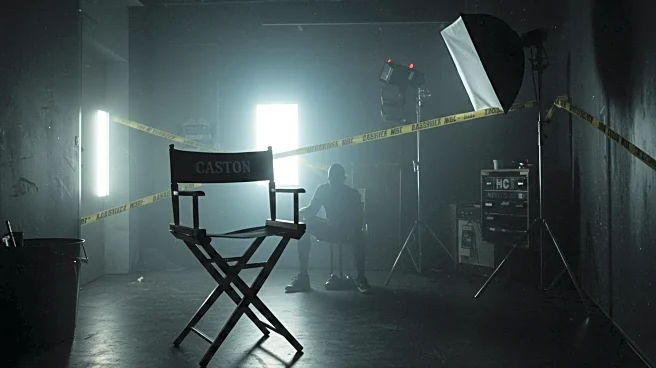What is the story about?
What's Happening?
Director Carl Rinsch is facing legal challenges over allegations of defrauding Netflix out of $11 million during the production of 'White Horse.' His defense team argues that Rinsch was in a 'state of psychosis' at the time, which impaired his ability to form the intent necessary for fraud. They plan to call psychiatrist Dr. John Mariani to testify about Rinsch's mental state, which may have been exacerbated by prescription stimulants and the psychological impact of the COVID-19 pandemic. Rinsch, who has pleaded not guilty, was indicted in March for allegedly spending production funds on cryptocurrency and personal luxuries, including expensive Swedish mattresses. He is represented by the federal public defender's office and has requested to be transported to New York at government expense for a hearing. The defense is also seeking to transfer the case to Los Angeles, citing the location of Netflix and the alleged misconduct.
Why It's Important?
The case highlights significant issues in the film industry regarding financial management and accountability. If Rinsch's defense is successful, it could set a precedent for how mental health is considered in fraud cases, potentially impacting future legal strategies. The outcome may affect Netflix's reputation and financial practices, as the company invested $55 million in a project that remains incomplete. The case also underscores the challenges of managing large-scale productions during the pandemic, which may have contributed to Rinsch's alleged misconduct. Stakeholders in the entertainment industry are closely watching the case for its implications on production funding and legal accountability.
What's Next?
A hearing is scheduled for Tuesday, where Rinsch's defense will present their arguments. The trial is set for December 2, and the defense is seeking to suppress evidence obtained from search warrants, arguing lack of probable cause. They are also challenging the constitutionality of certain charges related to illicit transactions. The court's decisions on these motions will shape the trial's proceedings and could influence the legal strategies of both parties. The defense is pushing for more detailed information from prosecutors to prepare their case, which may lead to further legal maneuvers.
Beyond the Headlines
The case raises questions about the intersection of mental health and legal responsibility, particularly in high-stakes financial fraud cases. It also highlights the potential vulnerabilities in the entertainment industry's financial oversight, especially during disruptive events like the COVID-19 pandemic. The legal arguments may prompt broader discussions on the ethical and legal standards for managing production funds and the accountability of directors and producers.















